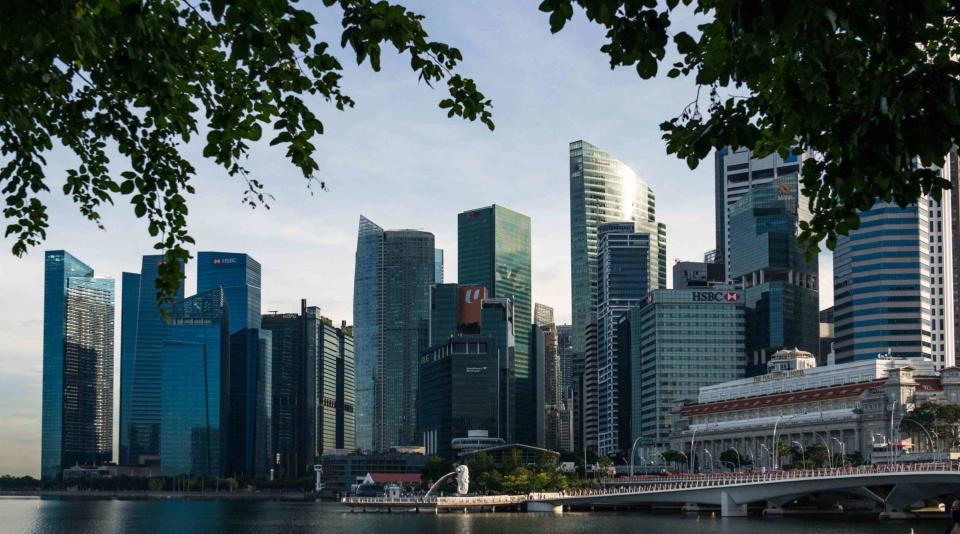Asset managers in Singapore grow total AUM by 16% to reach $5.4 trillion

Looking ahead, the MAS expects AUM growth to moderate in 2022 amid the ongoing macroeconomic and geopolitical risks.
According to the 2021 Singapore Asset Management survey published by the Monetary Authority of Singapore (MAS), total assets managed by Singapore-based asset managers grew 16% y-o-y to reach $5.4 trillion, up from $4.6 trillion in 2021.
The growth was mostly accounted by the net inflow of funds in 2021, with net new inflows at $448 billion or 58.9% of the y-o-y increase in assets under management (AUM). Valuation gains made up the remaining increase in AUM.
In 2021 Singapore remained an interest for global and regional asset managers who were looking to expand their presence in Asia. To be sure, the number of licensed and registered fund management companies in Singapore increased by 15% – or 146 more – to 1,108 as at December 2021.
During the same period, discretionary AUM continued to make up more than half of total AUM – or 52% of AUM – in 2021. According to the MAS, this is in line with the trend of asset managers basing their key investment professionals and decision-makers in Singapore.
The alternatives sector, which comprises private equity (PE) firms, venture capital (VC) firms, hedge funds, real estate and real estate investment trusts (REITs), also continued to be a key driver of AUM growth, increasing 30% y-o-y to reach $1.23 trillion. Within the sector, growth of private equity (PE) and venture capital (VC) AUM grew at a robust rate of 42% and 48% respectively. In that period, PE and VC managers reported that they had $90 billion and $5 billion of dry powder respectively. In this instance, dry powder refers to contractually committed capital but has remained undrawn.
In the traditional retail segment, which grew by 13% y-o-y, the size of Authorised Collective Investment Schemes (CIS) and Recognised CIS offered in Singapore stood at $134 billion, representing a five-year compound annual growth rate (CAGR) of 10%.
Authorised CIS stood at $83 billion while Recognised CIS stood at $51 billion.
Among the asset managers surveyed in MAS’s report, managed assets with an environmental, social and governance (ESG) overlay grew by 77% y-o-y. This made up 58% of total AUM in 2021. The number of asset managers offering ESG strategies increased by 16.3% – or 39 – to 279 in 2021.
Further to its report, MAS noted that one of its strategies under the Financial Services Industry Transformation Map 2025 is to develop private credit to complement private equity and venture capital funding, and broaden Singapore’s private markets ecosystem. In its 2021 report, the central bank revealed that it has expanded its Private Markets Programme to invest an additional US$1 billion ($1.42 billion) with top global private credit fund managers that are committed to establishing or deepening their presence in Singapore.
Of the $5.4 trillion in AUM in Singapore, 78% of the funds were sourced from overseas, while 90% of funds were invested into assets outside Singapore.
As at Oct 14, a total of variable capital companies (VCCs) representing over 1,300 sub-funds, have been incorporated or re-domiciled in Singapore for diverse use cases and fund strategies. These VCCs are managed by 420 regulated fund management companies.
The vibrant Singapore funds ecosystem is now supported or advised by more than 220 fund service providers, such as lawyers, tax advisors, corporate secretaries and fund administrators, says MAS.
AUM growth expected to moderate in 2022
Looking ahead, the MAS expects AUM growth to moderate in 2022 as investors may turn cautious amid the ongoing geopolitical and macroeconomic risks.
“Notwithstanding this, we continue to see keen interest from global and regional asset managers to set up office in Singapore, and/or to designate Singapore as one of the key nodes of their global operations, to tap into the strong network of private wealth managers, family offices and institutional asset owners, as well as investment opportunities in Asia,” says MAS in its report.
“With Singapore’s vibrant asset management ecosystem, we will continue to play an important role in serving and intermediating international investors and capital flows, to support Asia’s growth and net-zero transition needs.”
See Also:
Click here to stay updated with the Latest Business & Investment News in Singapore
MAS to re-centre the mid-point of the S$NEER policy band up to prevailing level
Get in-depth insights from our expert contributors, and dive into financial and economic trends

 Yahoo Finance
Yahoo Finance 